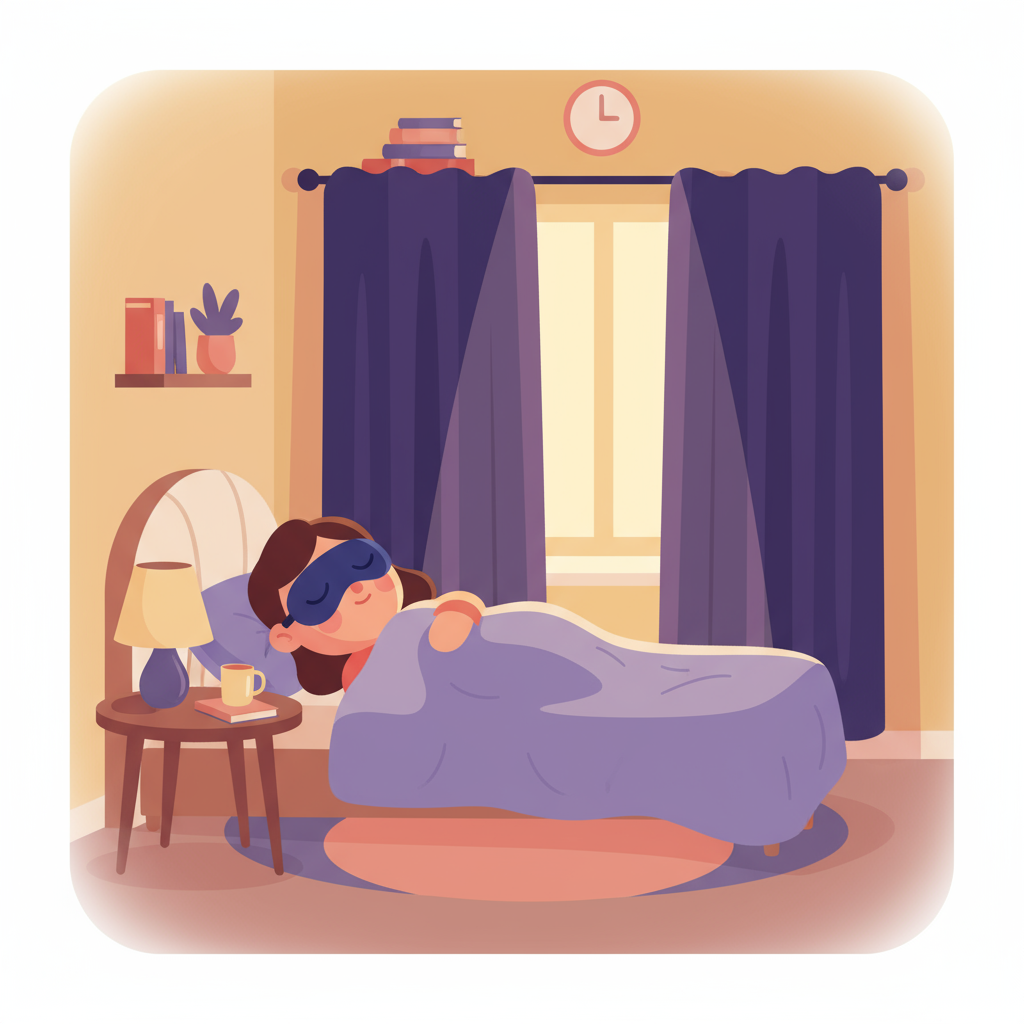Working the night shift can be tough, especially when it comes to getting consistent, restorative sleep. Your body’s natural clock is set to be awake during the day and asleep at night, so switching to a nocturnal schedule throws this off. You may find yourself feeling tired, groggy, or even less focused.
Fortunately, building sleep endurance and adjusting your body to night shift hours is possible with some simple, intentional daily habits. These strategies help your body adapt, improving the quality of your sleep and your overall alertness during the night.
In this article, we will explore easy-to-follow daily habits that night shift workers can use to build sleep endurance and feel their best on and off the clock.
Your 3 Daily Habits to Build Sleep Endurance
Habit 1 — Consistent Sleep Schedule
Why: Building sleep endurance starts with consistency. Going to sleep and waking up at the same time every day helps reinforce your body’s internal clock, even when sleeping during the day. This regularity improves sleep quality and helps reduce fatigue.
How: If your night shift starts at 10 p.m., set a fixed bedtime for around 8 a.m. each day, including your days off, if possible. Use blackout curtains or an eye mask to make your room dark during daytime hours, and use earplugs or white noise machines to block out noise.
Cue: Set an alarm or reminder to start your bedtime routine at the same time daily.
Habit 2 — Strategic Napping
Why: Short naps can boost alertness and reduce sleepiness during your shift, helping you maintain performance.
How: Take a 10- to 20-minute power nap during your breaks or right before your shift starts. Avoid longer naps, which can lead to grogginess.
Cue: Plan your break times ahead and find a quiet, comfortable spot to nap during your shift.
Habit 3 — Mindful Caffeine Use
Why: Caffeine can improve alertness but misusing it can disrupt your daytime sleep.
How: Consume moderate amounts of caffeine early in your shift to boost energy. Avoid caffeine at least 3 to 4 hours before your bedtime to ensure it does not interfere with your sleep.
Cue: Use a coffee or tea break early in your shift as a signal to take caffeine.
Week 1 Schedule
| Day | Routine |
|---|---|
| Day 1 – Before Night Shift | Sleep from 8 a.m. to 3 p.m., strategic nap from 9 p.m. to 9:20 p.m. |
| Day 2 | Maintain consistent sleep 8 a.m.-3 p.m., nap during break, caffeine early in shift |
| Day 3 to 7 | Keep consistent sleep and caffeine routine, use blackout curtains and white noise |
Troubleshooting
Barrier: Daytime noise disturbing your sleep.
Fix: Use earplugs and white noise machines to block disruptive sounds and create a peaceful sleep environment to build sleep endurance.
Barrier: Difficulty falling asleep after the night shift.
Fix: Establish a wind-down routine such as a warm shower or meditation to signal your body it’s time to sleep.
Barrier: Feeling groggy after naps.
Fix: Keep naps short (10-20 minutes) to avoid deep sleep and sleep inertia.
FAQs
Q: Can I change my sleep schedule on days off?
A: It is best to keep a consistent sleep-wake schedule even on days off to build sleep endurance and avoid disrupting your body clock.
Q: Is caffeine bad for my sleep?
A: Caffeine consumed too close to your sleep time can reduce sleep quality. Limit caffeine use to early in your shift and avoid it 3-4 hours before bedtime.
Q: Can naps really help me stay alert?
A: Yes, short naps (10-20 minutes) can refresh your mind and improve alertness on a night shift.
Tracking & Motivation Tips
Track your sleep times and quality daily using a sleep journal or app to see how your sleep endurance improves. Celebrate small wins like falling asleep faster or feeling more refreshed. Use reminders for your bedtime routine and caffeine limits to stay consistent. Remember, building sleep endurance is a process that requires patience and practice.
Key Takeaways for Building Sleep Endurance
Building sleep endurance as a night shift worker relies on creating steady sleep habits, incorporating effective naps, and managing caffeine wisely. Maintaining a consistent sleep-wake schedule every day improves your sleep quality, helping you feel more alert during night work. Simple habits like blackout curtains, strategic napping, and mindful caffeine consumption make a big difference. With patience and persistence, you can strengthen your sleep endurance and thrive on the night shift.




